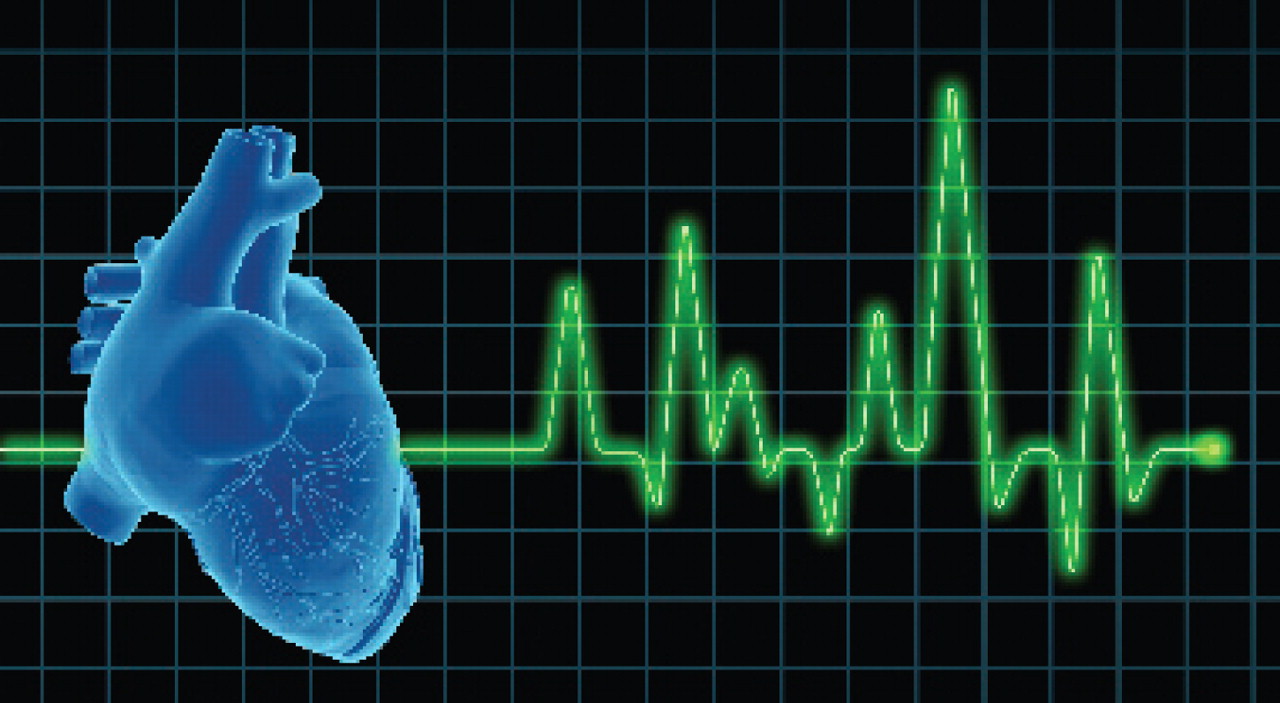The American Heart Association recommends the routine administration of an electrocardiogram (ECG) for all children with attention deficit/hyperactivity disorder who are prescribed stimulant treatment to minimize the risk of sudden cardiac death (SCD).
The recommendation is part of a scientific statement released by a group commissioned by the American Heart Association (AHA) and published online in the journal Circulation in April.
In addition to recommending a routine ECG, the statement also outlines specific steps to inquire about family history and to conduct a thorough physical examination for signs of potential heart defects or diseases such as hypertrophic cardiomyopathy, long-QT syndrome, and Wolff-Parkinson-White syndrome. AHA experts believe that routine ECG screening is “medically indicated and of reasonable cost.”
Child and adolescent psychiatrists interviewed by Psychiatric News disagreed with aspects of this sweeping recommendation for ECG screening.
“At this point, there is no evidence that such widespread screening would actually enhance safety or reduce the risk of rare but potentially serious heart-related problems,” David Fassler, M.D., a pediatric psychiatrist and a clinical professor of psychiatry at the University of Vermont, told Psychiatric News. “This recommendation is not consistent with the FDA's assessment or with the current guidelines of other medical organizations, including the American Academy of Child and Adolescent Psychiatry [AACAP] and the American Academy of Pediatrics.”
Fassler is also APA secretary-treasurer.
In a recent retrospective study of 55,000 ADHD patients aged 3 to 20, researchers at the University of Florida found that the use of stimulants was linked to a small increase in cardiac side effects, such as increased blood pressure and palpitation that led to emergency-room and doctor-office visits. But the study showed no increased risk of cardiac deaths or cardiac-related hospitalizations (Psychiatric News, February 1).
Steven Pliszka, M.D., a professor of psychiatry and chief of the Division of Child and Adolescent Psychiatry at the University of Texas Health Sciences Center in San Antonio, also does not think routine ECG screening is necessary.
“If you look at the rates of SCD in available studies, there is no evidence of a higher risk in children with ADHD than the general pediatric population,” he told Psychiatric News. He pointed out that thousands of participants in many clinical trials received ECG screening before enrollment, and the cases of heart disease in these children were“ extremely rare.”
The AHA experts acknowledged in their statement that “there are no clinical studies or data indicating that children with most types of congenital heart disease are at significant risk for SCD while on these medications” and “no widely accepted recommendations or standards of care for cardiac monitoring on stimulant medications.” Nevertheless, they urge physicians to conduct a thorough evaluation before prescribing stimulants for treating children and adolescents with ADHD, so that previously unknown cardiac risk factors are more likely to be identified.
However, the current AACAP guideline, a practice-parameter document on ADHD issued in 2007, states that “no evidence currently indicates a need for routine cardiac evaluation (i.e., electrocardiography, echocardiography) before starting any stimulant treatment in otherwise healthy individuals.”
“There is no evidence that children with ADHD are more likely to have heart disease. Nor is there evidence that taking stimulants causes heart diseases that increase the risk of SCD,” Pliszka pointed out. “In clinical trials of various stimulants, where ECG screening was used at enrollment, cardiac risk factors have been extremely rare.”
Pliszka is the lead author of the AACAP guideline, but he stressed that the opinions he expressed to Psychiatric News are his own and do not represent AACAP's official response to the AHA's statement. He suggested that clinicians treating ADHD focus on doing a thorough medical history and examination, including questions about family history of cardiac problems and patients' signs of cardiovascular risk factors, before starting them on stimulants.
What should physicians do if they detect signs or symptoms of heart conditions? The AHA statement recommends a consult visit with a pediatric cardiologist and evaluation involving the patient's family and other treating physicians to weigh the risks of prescribing versus not prescribing stimulants. The AACAP guideline recommends detailed cardiovascular evaluations including ECG and other tests if the patient has a medical history or possible signs of heart disease.
The Food and Drug Administration (FDA) has mandated a boxed warning in the label of Adderall (mixed amphetamine salts) but not methylphenidate, which states that “misuse of amphetamine may cause sudden death and serious cardiovascular adverse events.” The warnings section of the labels of all stimulants advises that “stimulant products generally should not be used in children or adolescents with known serious structural cardiac abnormalities, cardiomyopathy, serious heart rhythm abnormalities, or other serious cardiac problems.”
In addition, the AHA statement calls for the establishment of a registry for SCD in children, adolescents, and young adults to collect risk factors and clinical details in a standardized and systematic manner.
Fassler agreed with this suggestion. “There is a need for more large-scale, long-term research on stimulants and other medications used to treat child and adolescent psychiatric disorders,” he noted.
The FDA and the Agency for Healthcare Research and Quality are conducting a study that is expected to clarify the risk of SCD and other cardiovascular adverse effects, if any, connected to stimulants (Psychiatric News, October 19, 2007).
On the basis of current clinical evidence, “I do not see any convincing argument to alter the practice recommended by the current AACAP guidelines,” said Pliszka.
“Cardiovascular Monitoring of Children and Adolescents With Heart Disease Receiving Stimulant Drugs. A Scientific Statement From the American Heart Association Council on Cardiovascular Disease in the Young Congenital Cardiac Defects Committee and the Council on Cardiovascular Nursing” is posted at<circ.ahajournals.org/cgi/reprint/CIRCULATIONAHA.107.189473v1>.“ Practice Parameter for the Assessment and Treatment of Children and Adolescents With Attention-Deficit/Hyperactivity Disorder” is posted at<www.aacap.org/galleries/PracticeParameters/JAACAP_ADHD_2007.pdf>.▪

